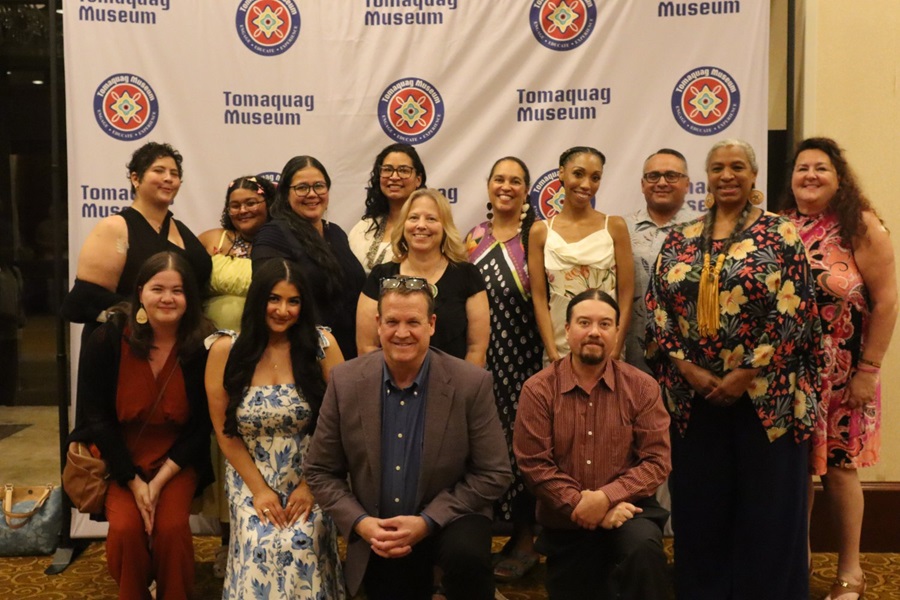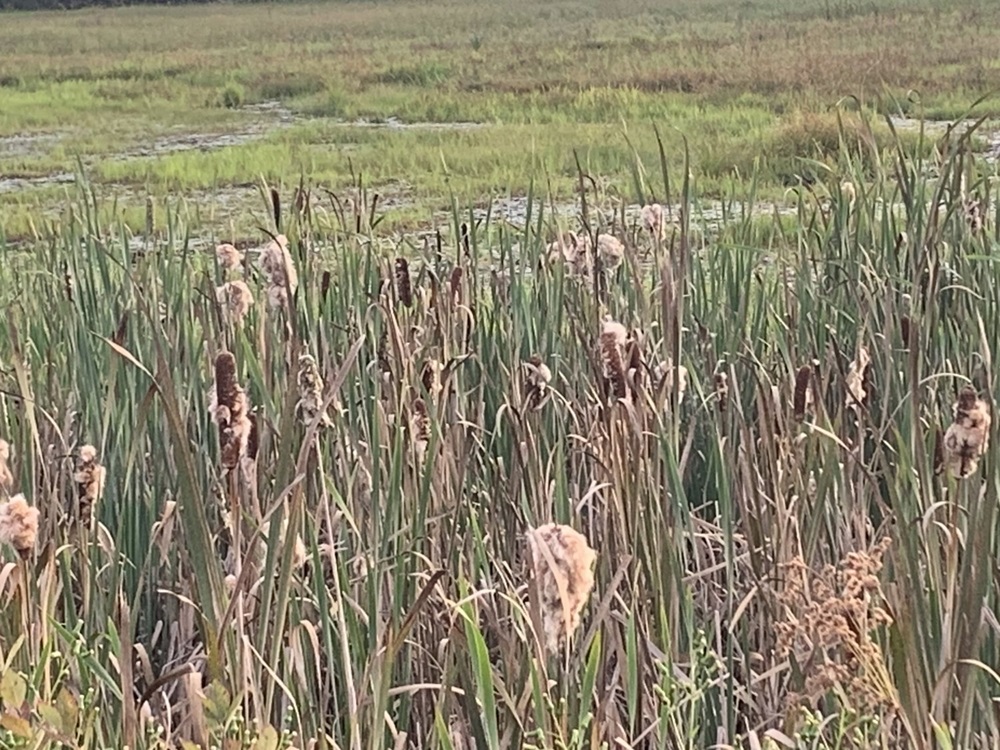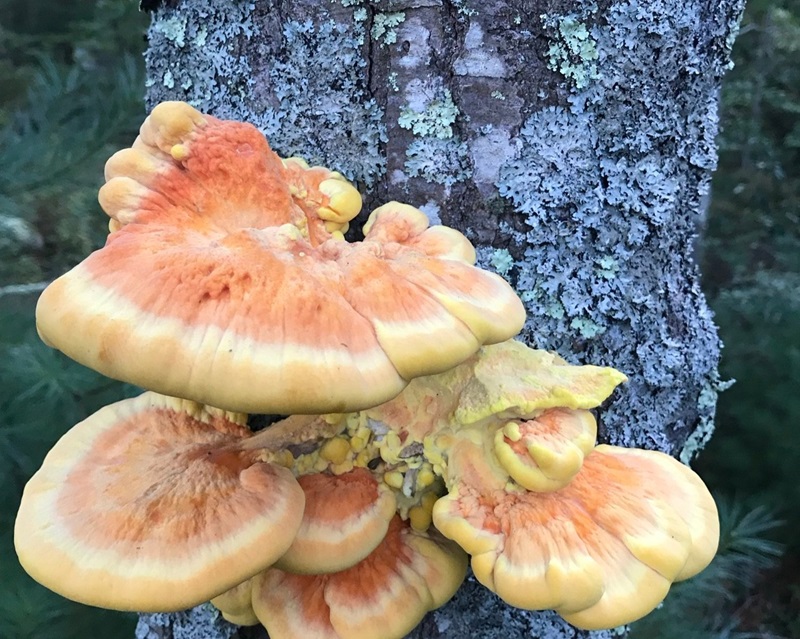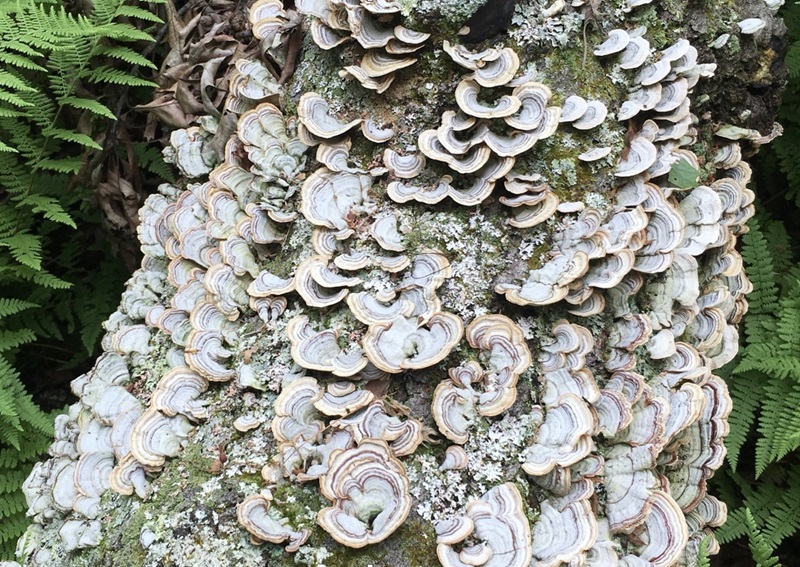Education News
Where History is Shared and Stories Continue
OCTOBER – DECEMBER 2024
KUNOOPEAM NETOMPAÛOG, WELCOME FRIENDS!

Hello Readers!
We’ve come to our final newsletter for 2024. The season begins with taquonk (autumn) and progresses into papone (winter) under the moons of harvest, hunters, and darkness (read about them in previous issues). As I’m pondering what to share on these pages, I’m riding through the Dawnland (New England) from Narragansett Country (Rhode Island), through Abenaki & Pennacook Country (New Hampshire), to spend time in Wabanaki – Abenaki, Maliseet, Mi’kmaq, Passamaquoddy, and Penobscot – traditional homelands (Maine).
It’s the last day of August and here in the Northeast Area of Turtle Island (United States), the leaves have already begun changing color. I’ve driven through valleys, climbed mountains, and navigated S-curves, and sloping roadways. There are farms of apples, pumpkins, and mums in shades of pink, deep red, yellow, and orange.
By the time you read this newsletter, the foliage will be in full color, bogs will be full of cranberries ready to be picked and turned into relish, sauce, jelly, or eaten fresh! There are festivals, fairs, and harvest celebrations throughout small villages and towns where freshly picked and homemade foods are available.
Drive through the Dawnland and visit some roadside stands and farmers markets that have become a symbol of this time of year in this region. While visiting, learn about the origins and remember the history of this place and all its people who lived, moved, and had relationships within these landscapes.
The Harvest

cattails in late summer/early fall
It is the season for harvesting all that has been grown or that grows naturally. Cattails brown fuzzy cones burst open to release their seeds for the wind to carry through the air for reseeding. Did you know cattails were edible? The roots can be ground into flour, the sap to thicken soups, and the tender shoots may be eaten raw or cooked. Cattails have medicinal qualities as well.
Their pollen can be applied to cuts to control bleeding and ingested for internal bleeding and menstrual pain. Cattail is an astringent with antiseptic qualities. A poultice may be applied to treat infections, blisters, stings, or as a skin wash.
Even their roots are mashed and used as a toothpaste.
As cattails are water plants, they are a good source of oxygen and necessary for maintaining wetlands. Their roots draw up nutrients from the water removing toxins.
Warning!
Our waters are no longer the pristine, life-giving source they were before colonization and the Industrial Revolution.
They are continuously being contaminated. These plants are great for protecting life existing in their presence, but human consumption now may be harmful to your health. Be sure if you harvest cattail, to do so in an environment unmolested by man-made features and structures. Check out this YouTube video for more!

Chicken of the Woods
Do you enjoy foraging for mushrooms? A popular favorite used by many Narragansett Tribal members is Chicken of the Woods (Click here for more information ).
To prepare safely, cut the “petals” of the mushroom from its base. Cut into slices about 1/4” thick and boil for about 10 minutes. Drain then sauté
with peppers and onions. We add these to spaghetti sauce in the place of meat and serve over pasta or spaghetti squash for a healthier option!
Many varieties of mushrooms are edible, but many look-alikes exist as well that are toxic. Some, while not edible, have medicinal qualities, such as the turkey tail. It supports gut, liver, and kidney health and maintains healthy inflammation levels. It is widely known for boosting the immune system to fight off cancer.
It is important to do your research when harvesting mushrooms for food or medicine.

turkey tail
Once you’ve developed a relationship with the environment around you, you will begin to recognize the edibles and medicinals more readily. But remember, in harvesting to be honorable. Never take too much, leave some for someone else, leave some to grow and spread, and share what you have.
